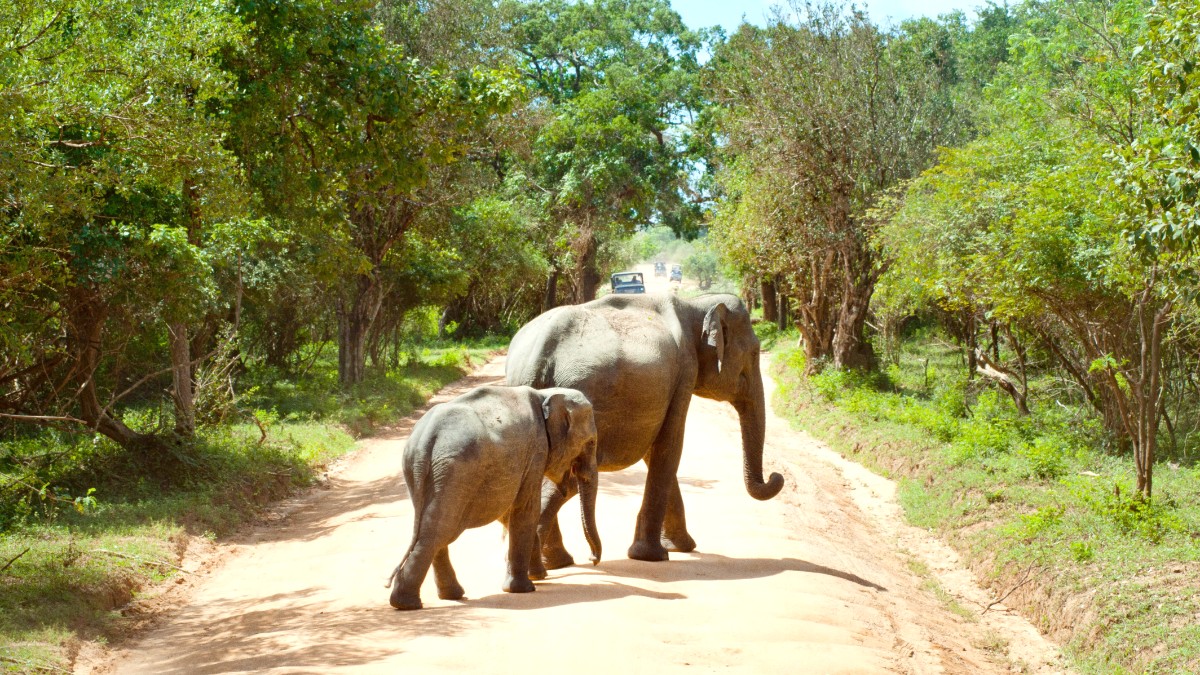
The South, Sri Lanka
Yala maintains warm temperatures year-round. Average daytime temperatures typically range from 26°C (79°F) to 30°C (86°F). Nights are slightly cooler but remain comfortable. Humidity stays high, generally above 80%, throughout the year.
The park is in Sri Lanka's dry zone, experiencing distinct wet and dry seasons. Northeast Monsoon (Maha) from October to January brings heavy rainfall. March to May can experience unpredictable showers. Southwest Monsoon (Yala) from May to September generally sees less direct impact, but localized showers can occur.
Most foreign nationals need an Electronic Travel Authorization (ETA) to enter Sri Lanka for tourism. Apply for the ETA online before arrival. It is usually issued quickly and typically valid for 30 days with a double-entry facility. While a visa on arrival exists for some, applying in advance is strongly recommended to avoid delays. You can extend ETA visas for up to 90 days from your arrival date at the Department of Immigration and Emigration in Colombo.
Your passport must remain valid for at least six months beyond your intended departure date. Officials may request proof of a confirmed return or onward ticket and sufficient funds. Print your ETA approval notice for arrival. The ETA fee for most tourists is approximately US$50 when applied online. Fees can change, so verify the current rate. Upon arrival, present your passport and ETA approval. Immigration officers may take fingerprints. This process usually runs smoothly. IVisa or VisaHQ offer visa application services.
Yala National Park has specific entry requirements.
All visitors entering Yala National Park must have this permit, separate from visa fees. Pay it at the park entrance or arrange through your safari operator. Foreign adults: US$25-30 (excluding taxes/service).
You cannot enter the park without a registered safari jeep and an authorized driver/tracker. This rule ensures visitor safety and wildlife protection. A separate jeep entry fee (around US$10-15) applies.
Prioritize your health before and during your trip.
Required if arriving from, or transiting through, a country with risk of Yellow Fever transmission. Carry your vaccination certificate.
Dengue fever is prevalent. Use insect repellent. Drink only bottled or purified water. Stay hydrated to prevent heat exhaustion. Do not approach stray animals due to rabies risk.
Secure your trip with comprehensive coverage.
Purchasing comprehensive travel insurance is advisable. Ensure your policy covers medical emergencies, medical evacuation, trip cancellation, baggage loss, and personal liability. SafetyWing and World Nomads are good options.
Confirm your policy covers safari activities. Unexpected incidents can occur during wildlife encounters, and proper coverage offers peace of mind.
The local currency is the Sri Lankan Rupee (LKR or Rs). Exchange foreign currency at Bandaranaike International Airport (CMB) upon arrival. Banks and authorized money changers in major towns like Tissamaharama and Kataragama also offer exchange services. ATMs are widely available and accept most international credit cards. Carry small denominations of LKR for smaller purchases, local transport, and tips.
Tipping is customary in Sri Lanka, especially for good service. For safari drivers/trackers, a common guideline is LKR 2,000-5,000 per jeep for a half-day safari, adjusted for service and sightings. For hotel staff, small tips are appreciated. In restaurants, if no service charge is added, a 5-10% tip is customary. Tuk-tuk drivers are not typically tipped, but rounding up the fare is common.
LKR 5,000 - 13,000 / $17-45 (excluding full safari)
LKR 13,000 - 38,000 / $42-125 (excluding full safari)
LKR 43,000+ / $140+ (excluding full safari)
Hostels $7-13, Guesthouses $10-25, Mid-range Hotels $25-80, Luxury Lodges $100-500+
Local meal $1-3, Mid-range $5-15, Fine Dining $15-35+
Sri Lanka is generally safe for tourists, but understanding potential risks and precautions is wise.
Consult a medical professional well before your trip for personalized advice on vaccinations.
Protect yourself from common health concerns in the region.
Be aware of potential seasonal hazards.